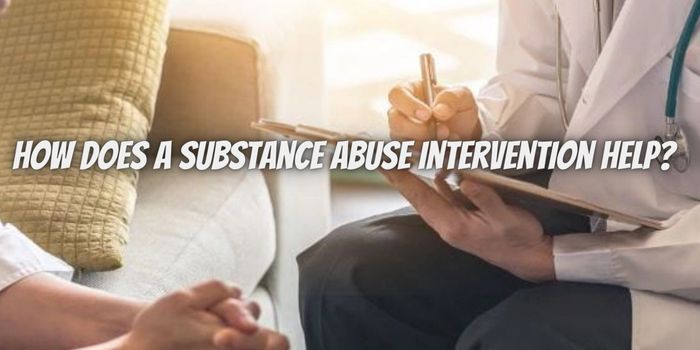Addiction is a disease that can take hold of a person’s life and cause destruction to themselves and those around them. Fortunately, there is a way to help those in need – through substance abuse intervention. But what is it, exactly, and how does it work? An intervention is a carefully planned and executed process where loved ones come together to allow the person experiencing addiction to accept help and treatment. It can be a difficult and emotional experience for all involved, but the result can be life-changing. If you or someone you know is struggling with addiction, keep reading to find out how to stage an intervention and take the first step toward recovery.
How Substance Abuse Intervention Help
Raising Awareness
Substance abuse intervention is an effective way of raising awareness about addiction. By bringing the individual’s problem to their attention, the intervention helps them understand the severity of their addiction. It provides an opportunity for loved ones to share specific examples of how substance abuse has affected their lives. This process encourages the individual to accept help and seek treatment. When done correctly, intervention can lead to successful long-term recovery. However, it is important to approach the intervention with empathy and understanding, acknowledging that addiction is a disease that requires treatment.
Breaking Through Denial
Denial is a powerful psychological defense mechanism commonly observed in people struggling with substance abuse. It prevents them from acknowledging the problem and accepting the reality of their addiction. Interventions aim to break through this denial by presenting the individual with concrete evidence of their drug use and its consequences. This helps them confront the reality of their situation and recognize the need for change. Interventions can provide a supportive environment and give the addict a chance to see that they are not alone.
Providing Support
Substance abuse interventions provide support to individuals who are struggling with addiction. The involvement of family and friends in the intervention process communicates care and love to the individual. The unified front of the support system shows the person that they are not alone in their struggle and that recovery is possible. Providing emotional and practical support helps individuals in recovery with coping mechanisms, avoiding relapse triggers, and building a new life beyond addiction. Family members and friends must remain committed to providing ongoing support and understanding throughout the recovery journey. This can include providing access to resources, attending support groups, or being present to talk to.
Presenting Treatment Options
Substance abuse interventions involve loved ones presenting the individual with treatment options, such as rehab programs, therapy, and support groups. The purpose of presenting these options is to help the individual understand that professional help is available and necessary for overcoming addiction. Loved ones may provide information about the specific types of treatment available, how they work, and what to expect during the treatment process. This helps the individual make an informed decision about what type of treatment may be most effective for their situation. Additionally, presenting treatment options can help the individual feel supported and encouraged to seek help for their addiction.
Motivating Change
Substance abuse interventions aim to motivate change by highlighting the negative consequences of addiction and expressing genuine concern. Loved ones often stage interventions to inspire individuals to seek help and make positive changes in their lives. By providing information on the physical, emotional, and social impacts of substance abuse, interventions can motivate individuals to consider their behavior and make a decision to seek help. Motivating change requires a deep understanding of an individual’s circumstances and preferences. Therefore, the approach must be tailored to consider the individual’s specific needs and goals.
The main objective of a substance abuse intervention is to overcome the resistant behavior and denial frequently linked to addiction. It aims to provide a structured and compassionate approach to motivate individuals to acknowledge the detrimental effects of their substance abuse and commit to positive behavioral changes. Interventions offer an opportunity for loved ones to express concerns while offering support and guidance to those struggling with addiction. As a result, individuals can be steered towards effective treatment options that can facilitate a successful path toward recovery. Substance abuse interventions can foster hope, healing, and renewed well-being.
Sometimes it takes a village to help someone struggling with substance abuse, which is why interventions can be incredibly powerful. The main objective of a substance abuse intervention is to offer the person in question a supportive environment where they feel heard, loved, and understood. While it can be difficult to take that first step, an intervention can change someone’s life and set them on the path to recovery.




